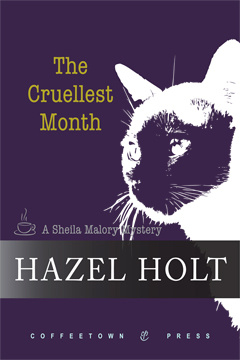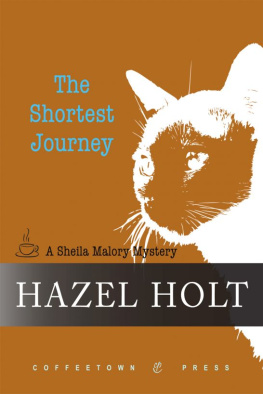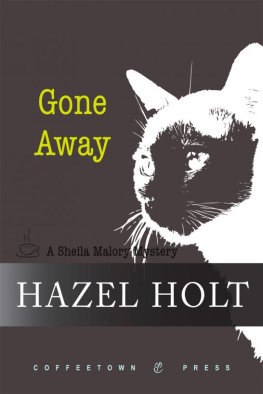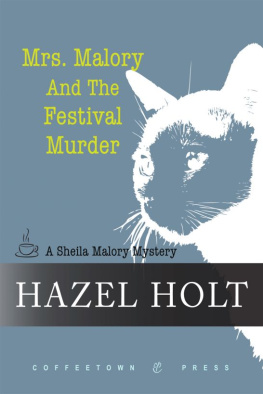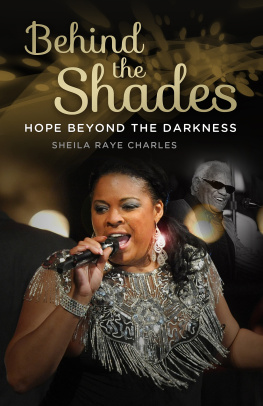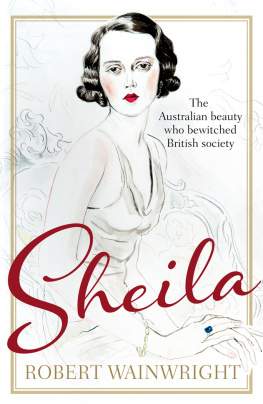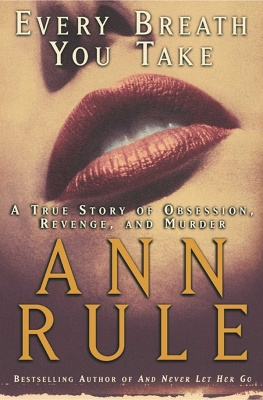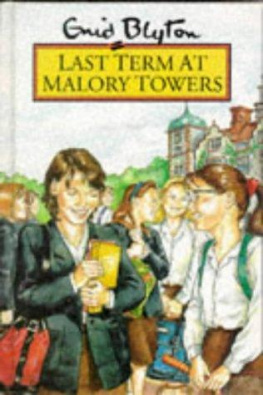THE CRUELLEST MONTH
by
Hazel Holt
SMASHWORDS EDITION
* * * * *
Published by Coffeetown Press on Smashwords
PO Box 95462 Seattle, WA 98145
The Cruellest Month
Copyright 2010 by Hazel Holt
Published by Coffeetown Press PO Box 95462Seattle, WA 98145
All rights reserved. No part of this book maybe reproduced or transmitted in any form or by any means,electronic or mechanical, including photocopying, recording, or anyinformation storage and retrieval system, without permission inwriting from the publisher.
Cover design by Sabrina Sun
Contact: info@coffeetownpress.com
Copyright 2009 by Hazel Holt
ISBN: 978-1-60381-052-4 (Paper)
ISBN: 978-1-60381-042-5 (ePub)
Smashwords Edition LicenseNotes
This ebook is licensed for your personalenjoyment only. This ebook may not be re-sold or given away toother people. If you would like to share this book with anotherperson, please purchase an additional copy for each person youshare it with. If you're reading this book and did not purchase it,or it was not purchased for your use only, then you should returnto Smashwords.com and purchase your own copy. Thank you forrespecting the author's work.
* * * * *
For Tom and Kim
* * * * *
I would like to express my grateful thanks to Mr.W.H. Clennell, the Assistant Secretary of the Bodleian Library, forhis most generous advice and encouragement. And, indeed, to all themembers of the Bodleian staff whose kindness and efficiency makethat great library such an agreeable place to work in. I hardlyneed to add that the events and characters in this book are all(with the exception of the former librarian in section entitledChapter Thirteen) entirely fictitious.
* * * * *
The Cruellest Month
Chapter One
I put the hold all with the unreliable handle downcarefully on the pavement and reached inside the boot of the carfor a cardboard box full of assorted groceries and thrust it intoMichaels reluctant hands.
Oh great, he said, now I can open my very ownsupermarket.
Dont be such an ungrateful little beast, Ireplied. You know you say the food in college is disgusting andthat youre always hungry. And I know youve nowhere to cookanything, I added as he opened his mouth to protest. Ive justput in tins of corned beef and boxes of those little plasticcheeses that you like nourishing protein.
Whats this?
Vitamin C, I said defensively. Youre to take oneevery morning. The last thing you want this term, when youretaking your Finals, is one of your colds.
Oh, Ma, dont fuss!
A widow with an only child is allowed to fuss, Isaid firmly. Now are you sure you dont want me to help you unpackall this lot and put it away?
No thanks. I shall leave it strewn around my roomuntil it all beds down like compost. Anyway, Im supposed to beseeing Hardwick in about ten minutes.
Hardwick was a young man I had met in Michaels roomseveral terms before. He had been sitting slumped in an armchairwith his feet, in a disgraceful pair of trainers, propped up on thetable among the (unwashed) coffee cups, drinking lager from a can.I had assumed he was a fellow student until Michael introduced himto me as his tutor. Oxford certainly has changed since my day.
All right then, love. Ill drop in tomorrow afterIve been into the Bodleian. If youre not there Ill leave a noteabout Sunday. I think Betty would like you to come over.
OK. Of course Ill come. Id like to see Tonyanyway. Cheers.
He gave me a hug and, gathering up his possession,disappeared through the small gate into the college.
Since I had, for the rest of the hour, thatunbelievable rarity a free parking space in Oxford, I felt I shouldmake the most of it and decided to pop into the Bodleian shop toreplenish my stock of postcards (as I get older I find that Iconduct more and more of my correspondence on postcards) and thenhave a little wander around Blackwells make myself at homeagain, as it were.
Outside the Sheldonian a young man in a blazer and astraw boater was sitting on a camp stool with a notice beside himwhich read Brideshead Tour of Oxford 2.50. As I approached heraised his boater and said, Can I interest you in a tour ofOxford.
I looked at him coldly and replied, That will not benecessary, thank you, since I am myself a member of thisuniversity.
He grinned. Suit yourself, he said.
I smiled back feeling rather foolish and hurried on.I suppose all graduates feel that they are somehow marked out andspecial when they are in Oxford and that this should beimmediately apparent to all. To be mistaken for a tourist isdefinitely diminishing.
If I am hones, I must admit that my time at Oxfordwas the most purely happy of my whole life. That is not to say thatI havent had a marvellous life since a happy marriage, a son, asort of minor but satisfactory literary career but there issomething about the days of ones youth, when the world still hadthe dew upon it and anything seemed possible. I used to come toOxford by train then. It was not long after the war and althoughpetrol rationing had finished, it was still in short supply andoften difficult to come by. In any case, my father was dead and mymother, like so many women of her generation, had never learned todrive. But I enjoyed the train journey from Taviscombe, the smallWest Country town where I lived the little train to Taunton andthen on to Reading. After I had changed at Reading for the slow,local train, my trunk and my bicycle safely in the guards van, Iwould put away my book and enjoy the familiar litany of stations,each one bringing me nearer to Oxford Tilehurst, Pangbourne,Goring, Cholsey and Moulsford, Didcot, Appleford, Culham, Radley peering out of the window at the river as it wound lovingly throughthe countryside, craning my neck to see the University barges andthen, always with a sense of excitement, the spires silhouettedagainst the sky.
But it was not, in spite of a continuing passion forEnglish literature, Matthew Arnolds spires or his warm,green-muffled Cumnor hills, or Hopkins towery city, or HardysJude, or even Max Beerbohms Zuleika Dobson that had made medetermined, from my earliest teens, to come to Oxford. It was, infact, Lord Peter Wimsey, Dorothy Sayers hero, with his wit,sensitivity and, above all, his habit of quotation, who epitomisedfor me all that was romantic and glamorous in the world outsideTaviscombe. My husband used to say, only half joking, that I onlymarried him because his name was Peter and he went to Balliol. So Iwent up to Oxford in the early 1950s with my head full of romanticnonsense (me, Sheila Prior, actually living in the world of GaudyNight) and Fate was kind enough not to disillusion me. I had awonderful time.
One of my best friends, when I was up, was BettyRochester and we had kept in touch over the years. She had marrieda doctor who practised just outside Oxford (how I envied her that!)and I was godmother to her eldest child, Tony. I always stayed withher when I had any research to do in Oxford. I have publishedseveral books of criticism mostly on minor Victorian writers,though there arent many of those left to work on now and I do alittle reviewing for literary magazines, mostly American andCanadian; no one else seems to have the money to keep them goingbeyond the second issue. I had been asked to write a paper TheHome Front Novel: English Women Writers in the Second World War.It wasnt really my subject, though an enjoyable one, so I wasproposing to combine transporting my son Michael and all his gearto college with a little peaceful research in the Bodleian.
Betty (now Stirling) lived on the outskirts ofWoodstock and as I drove up the Woodstock Road I was in my usualdaydream of happiness at being in Oxford at the beginning of thesummer term when all the trees are coming into leaf and the pinkand white and mauve blossom bursts out exuberantly all over NorthOxford. I looked for the great copper beech, a favourite landmark,on the corner of Lathbury Road, and there it was, its new leaves asoft haze of mauvish bronze. As I drove round the Wolvercoteroundabout I was singing quite loudly. The Stirlings lived in alarge modern house, but suitably built of Cotswold stone so that itmerged harmoniously into the landscape. The gardens were large andfull of unusual and beautiful flowers and shrubs. Robert, Bettyshusband, was a fanatical gardener I suppose it was a good way ofrelaxing from the demands of his patients, though, actually, he wasvery much an old-fashioned GP and simply loved house calls and longcosy chats, where he picked up all sorts of gossip, which hejoyfully and most unethically relayed all over the village. He wasimmensely popular and I must say I often wished he was mydoctor.

